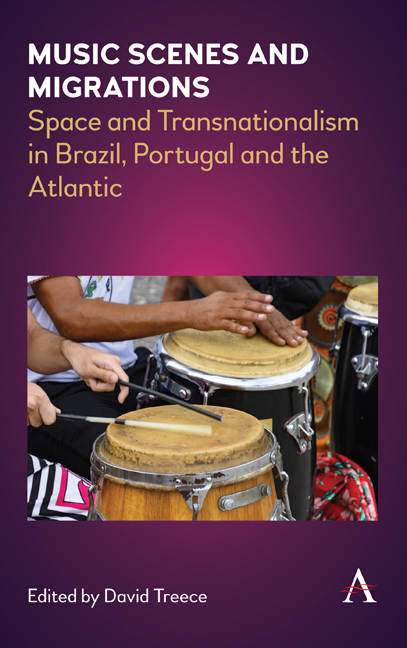Book contents
- Frontmatter
- Contents
- List of Illustrations
- Acknowledgements
- Introduction
- Part 1 Colonial and Postcolonial Transnationalisms, Migrations and Diasporas
- Part 2 Relocating Rio de Janeiro
- Part 3 Demetropolitanizing the Musical City: Other Scenes, Industries, Technologies
- Notes on Contributors
- Notes
- References
- Index
Introduction
Published online by Cambridge University Press: 20 January 2022
- Frontmatter
- Contents
- List of Illustrations
- Acknowledgements
- Introduction
- Part 1 Colonial and Postcolonial Transnationalisms, Migrations and Diasporas
- Part 2 Relocating Rio de Janeiro
- Part 3 Demetropolitanizing the Musical City: Other Scenes, Industries, Technologies
- Notes on Contributors
- Notes
- References
- Index
Summary
In his interdisciplinary account of black culture,religiosity and territoriality, The Temple Yard and the City (O Terreiro e a Cidade,2002), Afro-Brazilian scholar Muniz Sodré opens hisdiscussion of space and modernity by recalling how,in classical antiquity, music had a special,symbolic value in defining the boundaries of thecity:
Broadly speaking, […] the pre-Socratics(especially the Pythagoreans) see space as thatentire ambit inside which the inhabitants of acommunity move about. The myth of Linus [theinventor of melody, rhythm and songs], the son ofApollo, founder of Athens, can bring someclarification to the matter. It is said in themyth that, when Linus died, the people, trees andanimals wept. The Athenean space extended as faras the echoes of their laments, as far as themusic was able to resound. (Sodré 2002, 22)
By imagining the constitution of urban space in theseterms, as the sonic, material projection of ourhumanity into the environment we inhabit, the mythof Linus eloquently draws attention to the uniquecapacity of music to give temporal and spatial formto our collective inner lives, and so to ‘gather upand reveal to us the structures of the internal andexternal social worlds and the relations obtainingbetween them’ (Shepherd and Wicke 1997, 129). It isthis articulatory, relational power, intensifyingour shared sense of being and identity in time andspace, which gives music its distinctive socialmeaning, as Micael Herschmann and Felipe Trottaremind us in the pages of this book: ‘Howeverindividualized musical experience may have becometoday […] it is still largely an experience ofencounter, based onthe setting up of social (and communicative)relationships […]. Since that sociability isachieved through music, it must be in verbal andnon-verbal soniccommunication that we will find the key to thesharing of worldviews, thinking and values thatsuffuses musical experiences’ (see Chapter 9).
Much has been written in recent years on the topic ofmusic, space and place. But what special challengesare posed by the phenomenon of popular music-makingwithin the multi-continental spatial field occupiedby Portuguese-speaking peoples and territories, thatof the so-called Lusophone world?
- Type
- Chapter
- Information
- Music Scenes and MigrationsSpace and Transnationalism in Brazil, Portugal and the Atlantic, pp. 1 - 8Publisher: Anthem PressPrint publication year: 2020



